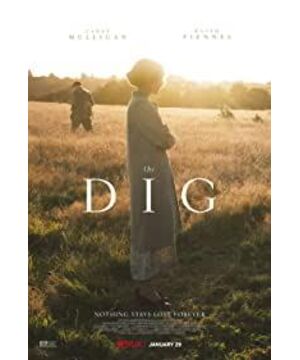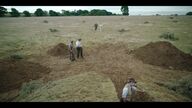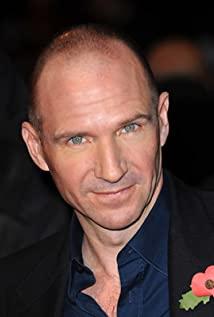The question about how we ourselves are in history may have been overwhelmed by busy work. The world is changing, and the well-dressed politicians are planning tactics, and the interlocking time seems to have determined the direction of the world. The generals and writers in the black and white photos use their profound eyes to shape our thinking about ourselves and the future. We might as well go a little further, when human beings left handprints on murals for the first time, when people dance by the campfire for the first time, when people see the world on the other side of the mountain for the first time, when people look at the sky for the first time Fanxing thought about the meaning of his existence... What would they think?
These narratives always seem so out of reach. In the ruthless epidemic, the life that once seemed to be taken for granted will also be dissipated in the fields of time like a dandelion blown away by the wind. Get up early, go to work, lunch, get off work, go home, dinner, sleep. How much leisure can make us think about where we came from, what we are doing in this world, and in the unreachable future, some people will remember one of our crappy jokes, one that made God laugh. Thinking about it?
What is an individual in history? I think no one has ever given us a complete explanation. Perhaps there are geniuses who seem to have talent since they were young, who have experienced hardships and eventually become powerful, influencing their times in their own way, and leaving a little precious touch for ourselves today. Perhaps these are all shackles of the times. From a macro perspective, like we brutally put the word "dark" on the European Middle Ages, why is there St. Augustine, why is there Thomas Aquinas, and why is there a butterfly flying to the Bible? , Triggering thinking about the origin of this world? Plekhanov once wrote a book, "On the Role of Personal History." He refuted the individualistic view of a person like Napoleon who has shaped the political situation in Europe in the past decade, and he also reflected on the negative existence of individuals under the influence of the times. However, he finally returned to history, a concept that determines the meaning of our personal existence in philosophy and history.
"Discover" (the dig), I personally think this is a beautiful translation. Dig, can be translated as "digging", "digging" simply refers to the meaning of digging the ground with tools or hands. However, in the Oxford dictionary, this word actually has an informal meaning of "understanding".
Compared to feature films or biopics with diverse structures and transitions, the plot of this movie is actually very ordinary. An amateur archaeologist who was rejected by academic orthodoxy, with the support of a wealthy widow who died soon, discovered an archaeological site that is still famous all over the world. "Excavation" certainly symbolizes a disdainful pursuit of knowledge and history. No matter what kind of ridicule, no matter what kind of humiliation, no matter how difficult, even risking the cost of his life, he is willing to let the treasures that have been enclosed in history reappear to the world.
But behind this pursuit, what does he reflect?
”You always told me your work isn't about the past or even the present. It's for the future. So that the next generation can know where they came from. The line that joins them to their forebears. Isn't that what you always say?"
This is one of my favorite lines in this movie. I believe that many readers, like me, are full of endless curiosity about the vast history. After all, we have known the teaching of taking history as a mirror since we were young. In the movie "The Da Vinci Code", when the protagonist escapes the police and comes to a friend's house, the friend tells him that history allows us to see what happened through the glass of time. History can easily collide with our emotions, which can produce a variety of emotional sparks. Perhaps it is the "Bili Lili, the Seedling of Piji" cherishing the prosperity of the past, or the sigh of "The feather fan and the turban, between the chat and the laughter, the ashes of the shoal disappears" and the little envy of the loss of oneself, how can you compensate? A late British Nationalism Studies scholar, Anthony Smith once proposed some spectacular landscapes, art works that praise heroes, and even evoke the identity of each individual within the same framework.
After finally accepting the fact that his mother will pass away, the boy who was once collapsed and helpless also prepared a surprise for his mother. The galaxy is shining, and the mother becomes a queen. One day, the mother will meet the father-the king who has traveled far away. When five hundred years have passed, when they look back, they will see the children called space astronauts. As for them, they are the most sincere. Smile. History may be deeper, is to explore our inner world, your troubles, your depression, your sorrow, your joy, your inspiration, your ambitions, when all these have links with people in the past, see With my hands digging in my wheat field, looking up at the tall buildings that will stand here hundreds of years later, perhaps time is no longer a barrier of eternal separation, nor is it a problem.
There seems to be a small dark line in the movie. The female archaeologist who fell in love with the younger brother of the hostess is actually in a very embarrassing marriage. Her husband is a homosexual. When the younger brother of the heroine was finally called to enlist in the Royal Air Force, she saw the light that she called the focus of a person for the first time during the excavation. After a short excavation, there is such an endless love silently watching him. Maybe it is time to break all this hypocrisy and pursue what I love. After all, every moment in life is so short, yet so eternal. It's just like how the protagonist in the movie "Big Fish" feels when he meets his beloved, as if time has stopped. Perhaps it is really a fantasy of the kingdom at a certain moment, holding hands for the first time, kissing for the first time, embracing his body for the first time, stroking his flesh for the first time, and crying so happy for the beloved baby for the first time... ·
I think of countless homosexuals who have been "persecuted" in British history, Oscar Wilde, Alan Turing, do they have such an opportunity to pursue the moment of time? How many women trapped in unhappy marriages have the opportunity to get their freedom? It seems that a normative discussion on the protection of marginalized groups will undoubtedly make this article lose some of its beauty. Putting all this aside, I believe that the moment we find "love" in life is the moment when we discover history and make our own existence eternal.
It is said that this cemetery was used to commemorate a king of the Vikings during the Anglo-Saxon period in England. According to legend, in a ship that can cross the earth, the historical king can finally cross the galaxy and reach Valhalla, the holy place of the dead in the hearts of the Vikings. After all, a thing has its own value and exists and time. China, or because of the value given by others, spans the past and the present. This may have been an endless quarrel in the coincidence of the theory of value and the philosophy of time. Perhaps the significance of a person in history is not to be a hero who shapes the times, or an ant that is confined to the times. An individual is more like a vague existence in collision with the times. What's more, what kind of "meaning" is the word "meaning"?
Ten years ago, I always liked to walk on Chang'an Avenue after watching a performance at the National Grand Theater. Now I am in a foreign country. I will miss the busy traffic and how much I have witnessed before and after the red wall. Under the starry night, there will be a breeze blowing my black hair from time to time, but this may be forever.
View more about The Dig reviews











